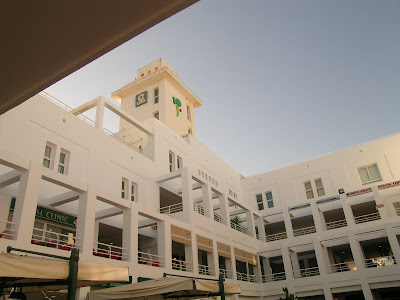It’s a large house – for sale if you are interested – and among other sundry attractions, we have three fireplaces. But no electric chainsaw. This means that we may have as much as one fire burning, hopefully somewhere near where I am shiv- I mean sitting, depending on whether anyone has been out sawing and gathering…
There are other solutions to keeping warm like the handy Spanish gas fire thingy on wheels that follows me about on a piece of string wherever I go, producing what it insists is something called ‘black heat’; the electric fire bought in an unthinking moment from Lopez a few years ago which the children unfailingly leave ‘on’ when they are out; and the heat from the ‘cocina’ which leaks from our enormous French oven and mixes with the tantalizing smell of dinner, keeping us all sat in the kitchen around the breakfast table for a genteel and civilized amount of time.
Any other solution to staying warm in our house during the winter snap is either to do with eiderdowns, wool, a hot bath, booze, cuddles or some passing physical exertion. We manage. A handful of crumpled up newspapers, a few twigs, a lump or two of orange-tree or pine root, close all the windows and Bob’s your uncle.
And, as long as it’s outside, I say to hell with the cat!
It is true to say that, if it’s cold in Mojácar, with its warm Mediterranean microclimate, then it will definitely be colder everywhere else. From my house I can see that there is snow on those high hills of the Filabres, no doubt great drifts of the stuff blocking the roads and covering the trees. I don’t think I’ll bother to go and look. The mayor of Vélez Blanco – which is still in Almería, you must visit their castle one day, and try the trout at the restaurant up there – was obliged to get his bright red tractor out over Christmas and put a snow-plow scoop on the front of it to help free some villagers in the nether parts of his pueblo. Their front doors and windows were buried under two metres of snow. Their wails of terror echoing up through their chimneys. I look forward to reporting an anecdote one day of our own intrepid mayoress doing something similar.
We are only a few hours from the Sierra Nevada (apparently only 55 minutes once they build the AVE route to Granada) where there is snow five months of the year. It’s a great place for skiing and drinking hot rum. I once went out walking with my father while staying in a hotel up there and we got quite lost. There was a blizzard and the road had disappeared. We were seriously contemplating the condition of our souls when, suddenly, a fellow carrying a wedding cake loomed out of the darkness coming from the other direction and we followed him several kilometers to a large and rather merry bar where we stayed the rest of the night.
Spain is famously a warm country, now even more so thanks to the disappointing results of the Copenhagen talks on CO2 controls, and it is always a surprise just how cold it regularly gets. This is primarily because most of the country is on a high plateau and somebody cut down all the trees several hundred years back while planning an invasion of England so there’s the wind-chill factor to consider as well. Icy city views appear on the television together with some old lady being interviewed and laughing ruefully about the cold. Mountain passes are often closed for a day or two at a time. Even the A4 motorway out of Madrid heading south was cut a few days ago because of the snow.
Rain is another thing you don’t expect to see much of in Spain, apart from Galicia where of course it rains every single day. We have a few clouds here and there, a rare damp afternoon in Roquetas de Mar, reports of a sprinkle in Lubrín, and then one night there’s a blue moon shining over Albox and suddenly we have a really good gully-washer.
So, despite the adverse weather patterns, every now and again, it rains. The garden needs it. The farmers need it. The roof-repair people need it. Especially in Mojácar where, for esthetic reasons, our roofs are, by law, entirely flat. But, come-on, who in their right mind is going to build a flat roof? Tilted ones with tiles stop the rain coming in and help insulate the house. I think it’s because our early builders here weren’t great shakes. So leaks are commonplace. Small pools of accumulated water on the roof. Eventually a trail of water drips menacingly through some weakened spot. Those nights of sloshing about in the guest-bedroom in one’s pajamas and slippers trying to move the bookshelf. Ah, happy memories!
Not any more though, no more leaks or drips. I had the roof fixed a couple of years ago.
It rained in every town
Except Mojácar,
A very damp and soggy
Thing to do.
It rained in every town
Except Mojácar
And then one day,
It rained in Mojácar too!
Except Mojácar,
A very damp and soggy
Thing to do.
It rained in every town
Except Mojácar
And then one day,
It rained in Mojácar too!



